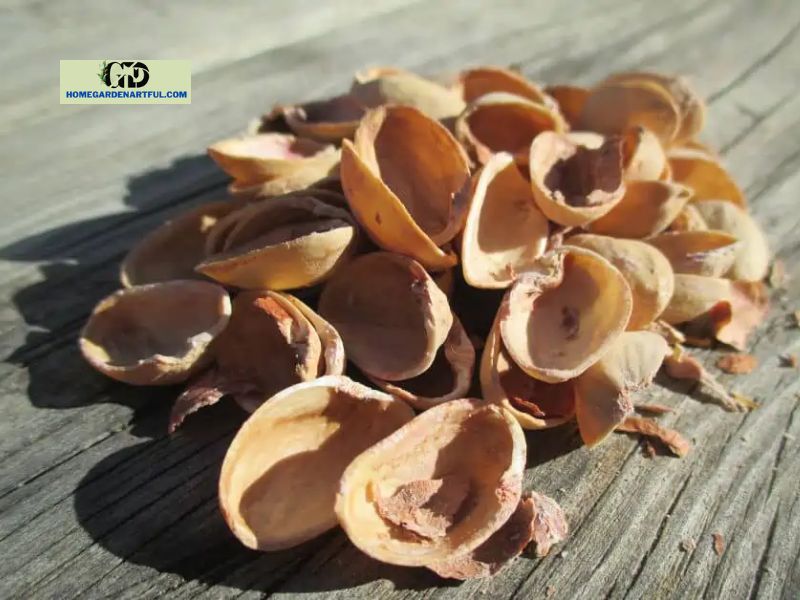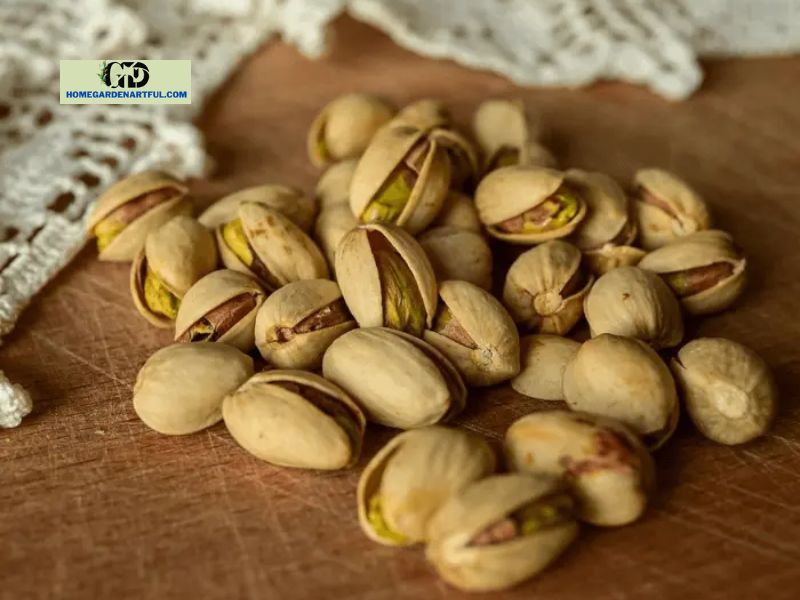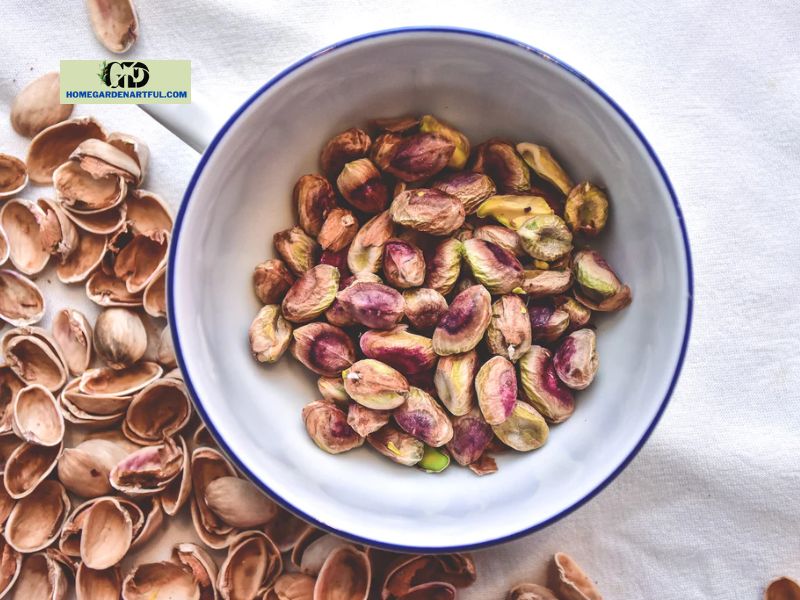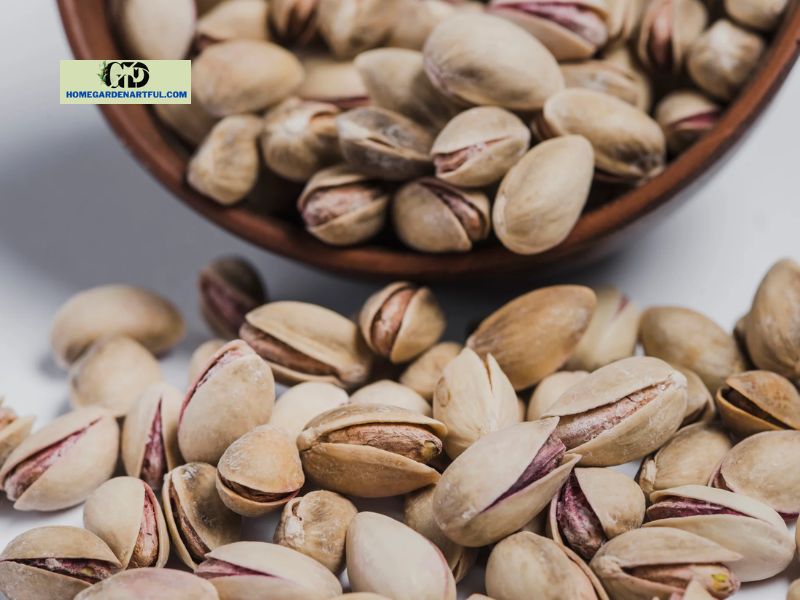Are Pistachio Shells Compostable? Making your own compost is an excellent natural plant food source. Compost may improve your soil, help you retain moisture, reduce your carbon footprint, and safeguard the environment. Compost can be made from yard trimmings and leftover food. Nutshells, including pistachio shells, are beneficial to include in your compost.
Compost prepared from scratch can aid your soils, fend against bug invasion, and lessen plant illnesses. It is a good idea to use less chemical fertilizer because it will help shield the ecosystem from harmful pollutants.
If you’ve ever wondered, “Are Pistachio Shells Compostable?” then read on at homegardenartful.com. Continue reading to learn everything there is to know about composting nutshells, particularly pistachio.
Are Pistachio Shells Compostable?

If the pistachios are unsalted, the shells can be composted. Pistachio shells that have been salted shouldn’t be composted since the salt will damage the soil and make it difficult for plants to flourish. Plants could also die if you apply salty compost to them.
If the pistachio shells are unsalted, they can be composted. Given that it will take a few years for the shells to degrade, many gardeners steer clear of including them in their compost. The shells, though, can benefit your yard in a variety of ways. Pistachios’ outer shells are great for making light compost. They improve aeration, water retention, and soil bulk.
It is recommended to slightly crush shells to make a powder rather than tossing whole shells into your compost bin. Pistachio shell fragments that are broken can degrade more quickly.
Various Nuts
Other nuts’ shells may also be included in your compost pile as long as they have been broken up. As long as they are not salted, peanut shells are suitable for the compost. These will decay more quickly than nuts with tough shells.
Uses For Your Compost

Compost can be added to your vegetable garden or flower beds after you’ve made a compost heap and given it a few months to break down. When sowing seeds, you can carefully include compost in potting soil because the nutrients will assist in feeding young seedlings. Additionally, compost can be utilized as an organic fertilizer around trees. The compost around your tree should be raked.
Applying compost to your vegetable garden in the fall is a smart idea. In the early spring, rake a few inches of the compost into the ground on top of your soil and let it to decay. Your crops will be fed by the compost all during the growing season.
In addition, you can fill holes with compost before planting seeds or seedlings. To nourish plants, add compost to the area surrounding their bases. Some plants, like tomatoes, benefit from monthly composting for optimum growth.
Compost can be added to flower gardens in the spring and the fall. You can aerate the soil in your flower beds and incorporate compost in the early spring.
Uses For Pistachio Shells Besides Nuts

There are a variety of different things you can do with pistachio shells if you don’t want to create your own compost. Making drainage for indoor plants using pistachio shells is one of its best uses. Add a layer of pistachio shells to the bottom of the pot while repotting indoor plants. This will prevent the plant from getting flooded. It’s important to keep in mind that the pistachio shells will eventually deteriorate and need to be replaced; they typically endure for around two years.
Plants, shrubs, and trees can benefit from the mulching properties of unsalted pistachio shells. For plant species that prefer acidic soil, they work best. Pistachio shells should be left in water overnight to help your plants retain moisture. Additionally, pistachio shell mulch can increase fertility and aid with weed prevention.
To keep snails and slugs away from your yard, use salted pistachio shells. Cats won’t dig in your yard if you scatter pistachio shells around the bases of your indoor or outdoor plants since they find it difficult to remove the shells and will instead dig somewhere else.
Conclusion
So, Are Pistachio Shells Compostable? To aerate the soil, add nutrients, and aid with water retention, pistachio shells can be crushed and added to your compost. Never compost salted pistachios because salt can harm plants and helpful soil bacteria.


